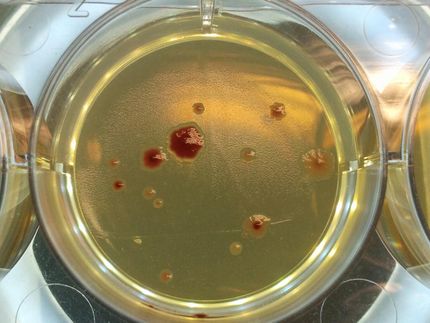Enterome to move its research laboratories
Establishing labs in France's biocluster Genopole
Enterome, a pioneer of innovative therapies for microbiome-related diseases announced that the Company is moving its research laboratories to Genopole, a leading biocluster dedicated to biotechnology and research in genomics and genetics. The new laboratories brings Enterome closer to its existing and potential new partners and provides opportunities to extend its scientific expertise and network to develop its business further.
About 15 of the 40 people employed by Enterome will work permanently at Genopole in laboratories dedicated to the discovery and development of innovative therapeutic products derived from the gut microbiome.
Pierre Belichard, CEO of Enterome, said: “The strategic relocation of our laboratories is a key step for developing our technology platform. Genopole is recognised internationally for the quality of its facilities and the professionalism of the technical team, which was a key factor in our decision to make our research headquarters at Genopole.”
The gut microbiome makes an important contribution to maintaining an individuals’ health as it plays a crucial role in building natural immunity. The latest discoveries have allowed the scientific community to characterise some of the functions of the gut bacteria and the understanding of the relationship between the microbiome and human health is becoming more and more important for the development of a new generation of drugs and diagnostics.
Understanding the mechanism of diseases linked to the dysfunction of the gut microbiome is at the heart of Enterome’s metagenomics research platform. By studying the key molecular mechanisms of the bacteria/host interaction, Enterome believes it can use this information to develop innovative drugs and diagnostics that will provide patients with better outcomes to their diseases.
Jean-Marc Grognet, CEO of Genopole, said: “We are delighted to welcome Enterome to our laboratories facilities at Genopole. The study of the microbiome is very important for understanding diseases such as Crohn’s disease, cancers, diabetes, gastro-intestinal disorders and metabolic diseases; and is aligned with our strategy to support research that reflects personalised medicine.”
Most read news
Other news from the department business & finance

Get the life science industry in your inbox
By submitting this form you agree that LUMITOS AG will send you the newsletter(s) selected above by email. Your data will not be passed on to third parties. Your data will be stored and processed in accordance with our data protection regulations. LUMITOS may contact you by email for the purpose of advertising or market and opinion surveys. You can revoke your consent at any time without giving reasons to LUMITOS AG, Ernst-Augustin-Str. 2, 12489 Berlin, Germany or by e-mail at revoke@lumitos.com with effect for the future. In addition, each email contains a link to unsubscribe from the corresponding newsletter.
Most read news
More news from our other portals
Last viewed contents

Study finds mushroom enzyme effective in combating hepatitis C - White mushroom enzyme has antiviral action against the hepatitis C virus and inhibits its multiplication




















































